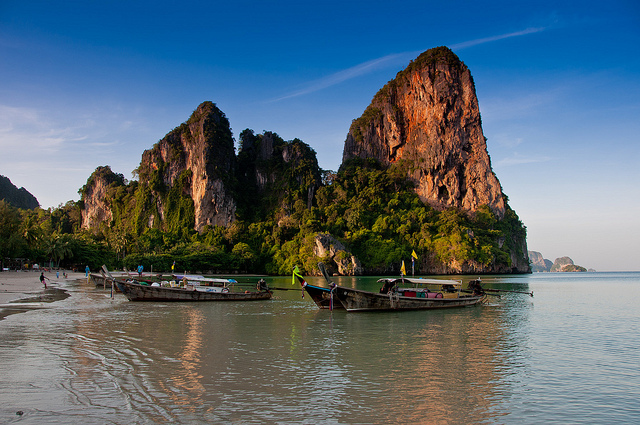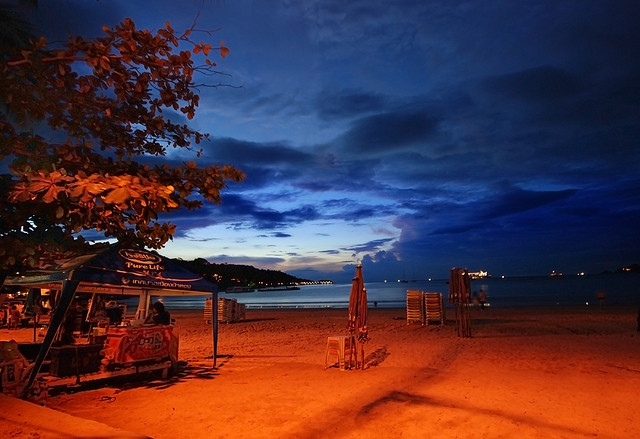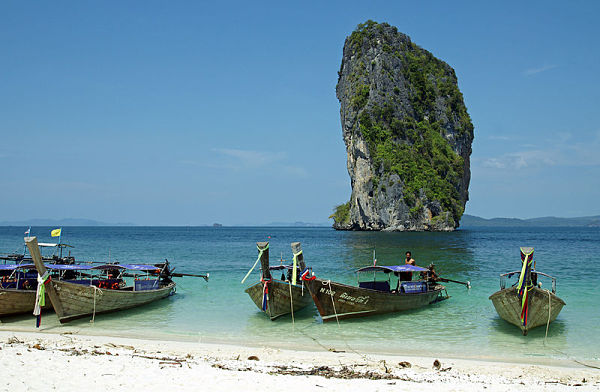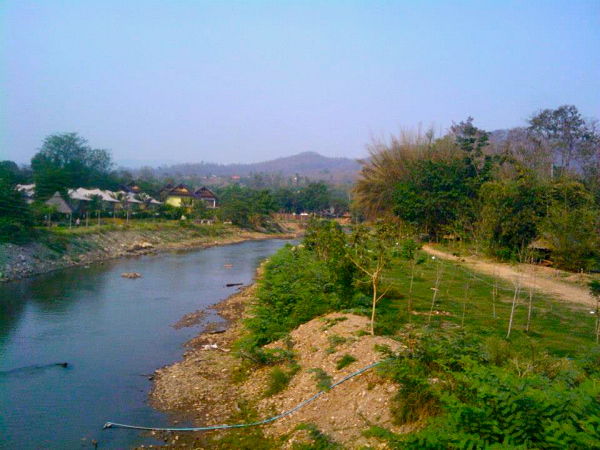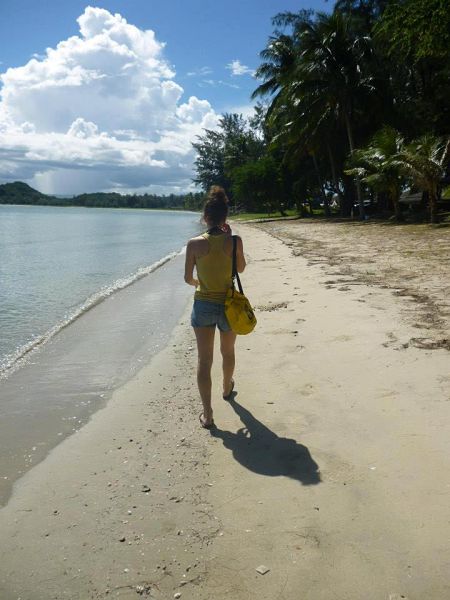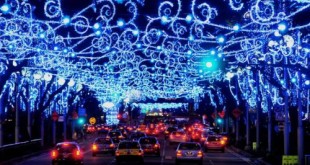As a country steeped in Buddhism and as a people who revere their kings, Thailand and Thais instituted holidays that revolve around religious festivals and the monarchy. A visit to the country during these holidays affords a glimpse into the psyche of the Thais and their devotion to Buddha and his teachings.
Below is Thailand public holiday schedule 2017. Should the holiday fall on a weekend, it is compensated on the workday immediately following the holiday. Note that on major Buddhist holidays, bars are closed and serving of alcohol is prohibited.
New Year’s Day – Sunday, 01 January 2017
Although Thailand is a predominantly Buddhist country and uses a luni-solar calendar in observance of its major religious holidays, it considers the first day of the Gregorian calendar as a public holiday.
New Year’s Day – (Observed) – Monday, 02 January 2017
Makha Bucha – Saturday, 11 February 2017
The third lunar month in Thai is referred to as “Makha” and “Bucha” means to venerate. So on the full moon of the third lunar month, Buddhists venerate through meditative introspection the three fundamental teachings of Buddha (Ovada Patimokkha) which are to do good, refrain from doing evil, and purify the mind.
Makha Bucha – (Observed) – Monday, 13 February 2017
Chakri Memorial Day – Thursday, 06 April 2017
King Bhumibol Adulyadej is the 9th king of the Chakri lineage. This day was established to remember the founding of the Chakri Dynasty by King Rama I. He assumed the throne on April 6, 1782. This is a busy day for the Thai monarchy, the government and the people as they pay respects to the previous monarchs by holding religious ceremonies in the royal chapel and laying down wreaths in front of the Royal Pantheon and at the statue of King Rama 1.
Songkran – Thursday to Sunday, 13-16 April 2017
The Thai version of India’s Holi, Songkran is a Sanskrit derivative of “sankranti”, meaning “pass” or “move into.” This is in reference to the passing of the sun to the constellation Aries, the first sign of the zodiac. Songkran, since it was based on astrological calculations, is Thailand’s traditional New Year (it was replaced by April 1 in 1888 and April 1 was replaced by January 1 in 1940). This day is celebrated with sprinkling Buddha images and each other with water (or more like splashing each other with water), offering food to the monks, and going back to hometowns to pay respects to the elders.
Songkran – (Observed) Monday, 17 April 2017
Labor Day – Monday, 01 May 2014
This day celebrates the socio-economic achievements of laborers in Thailand and all over the world.
Coronation Day – Friday, 05 May 2017
King Bhumibol Adulyadej was crowned as Rama IX on this day in 1950. This day is actually a three-day celebration (starts on May 3) that culminates on the 5th of May. On the anniversary of the coronation itself, the King opens several quarters of the Grand Palace that are often off-limits to the public and changes the robe of the Emerald Buddha in Wat Phra Kaew (the Buddhist temple inside the palace complex).
Vesak – Wednesday, 10 May 2017
Christians celebrate the birth and death of their savior as separate occasions, but Buddhists celebrate the birth, enlightenment and death of Buddha as one. Visakah Puja, as Vesak is called in Thailand, is celebrated with giving alms to the monks, giving bath to Buddha images, making merits at the temples (flowers and incense), and chanting sacred hymns.
Asalha Puja – Saturday, 8 July 2017
Buddha’s first sermon, which laid down the foundation of Buddhism, is celebrated on this day. Buddhists make merits, perform the “wien thien” or a candlelit procession around the temples and shrines done three times, and hold reunions with the family.
Asalha Puja – (Observed) – Monday, 10 July 2017
Beginning of Vassa (Buddhist Lent) – Tuesday, 11 July 2017
Monks roam around Thailand during the dry season to share the teachings of Buddha. But during the start of the rainy season – the beginning of Vassa (rains retreat) – they remain indoors in temple grounds to engage in intensive meditation. On this day, the lay refrain from eating meat, smoking and drinking alcohol.
The Queen’s Birthday (Mothers Day) – Saturday, 12 August 2017
On this day in 1932, Queen Sirikit, King Bhumibol Adulyadej’s consort, was born. Because she is regarded as the mother of all Thais, this day is also observed as the National Mother’s Day. On this day, the royal emblems fly and buntings of yellow cloth adorned with the Queen’s portraits are hung outside.
The Queen’s Birthday – (Observed) – Monday, 13 August 2017
Chulalongkorn Day – Monday, 23 October 2017
Rama V, more popularly known as King Chulalongkorn, was the monarch who fought off European colonization, making Thailand the only non-colonized Southeast Asian country. King Chulalongkorn was also instrumental in the abolition of slavery, the installation of post and telegraph services, the construction of railways, and the creation of a ministerial system. Thais mourned his death on this day in 1910, and continue to revere the King on the anniversary of his passing.
The King’s Birthday (Fathers Day) – Tuesday, 05 December 2017
Rama IX or King Bhumibol Adulyadej, the world’s longest-serving monarch, was born on this day in 1927. On his birthday, Thais display the national flag and put up buntings of yellow cloth adorned with the King’s portraits. The Grand Palace is lavishly adorned on this day, and roads nearby are closed to traffic in preparation for the evening celebrations that attract thousands of loyal Thais.
Constitution Day – Monday, 11 December 2017
Siam, as Thailand was then known, was once under absolute monarchy (where all the power rests on the king alone). But in June of 1932, the Thai monarchy was upset by a bloodless coup that allowed for the transition towards constitutional monarchy. This means that the ultimate power belonged to the Thai people, and the King’s veto can be overruled.
New Year’s Eve – Sunday, 31 December 2017
In observance of the Gregorian calendar, Thais also celebrate the final day of the year along with the rest of the western world.
